
Written by Kim Slack
Registered Dietitian, Owner/Operator of On Your Table
Lehigh County
We all want our kids to love veggies! But sometimes, what we want doesn’t matter! Kids have minds of their own! As parents, we have to remember that their love for veggies happens over many years, not single meals, days, or even months. However, we can’t just let time pass and hope our kids’ love for vegetables will grow! We have some very key things to do!

Start by having vegetables around!
Kids need frequent and varied exposure to build comfort and interaction. Have your kids help you pick out vegetables to buy, try leaving them visible on the counter when safe, ask them to handle them for you, and add them to all meals – even breakfast!
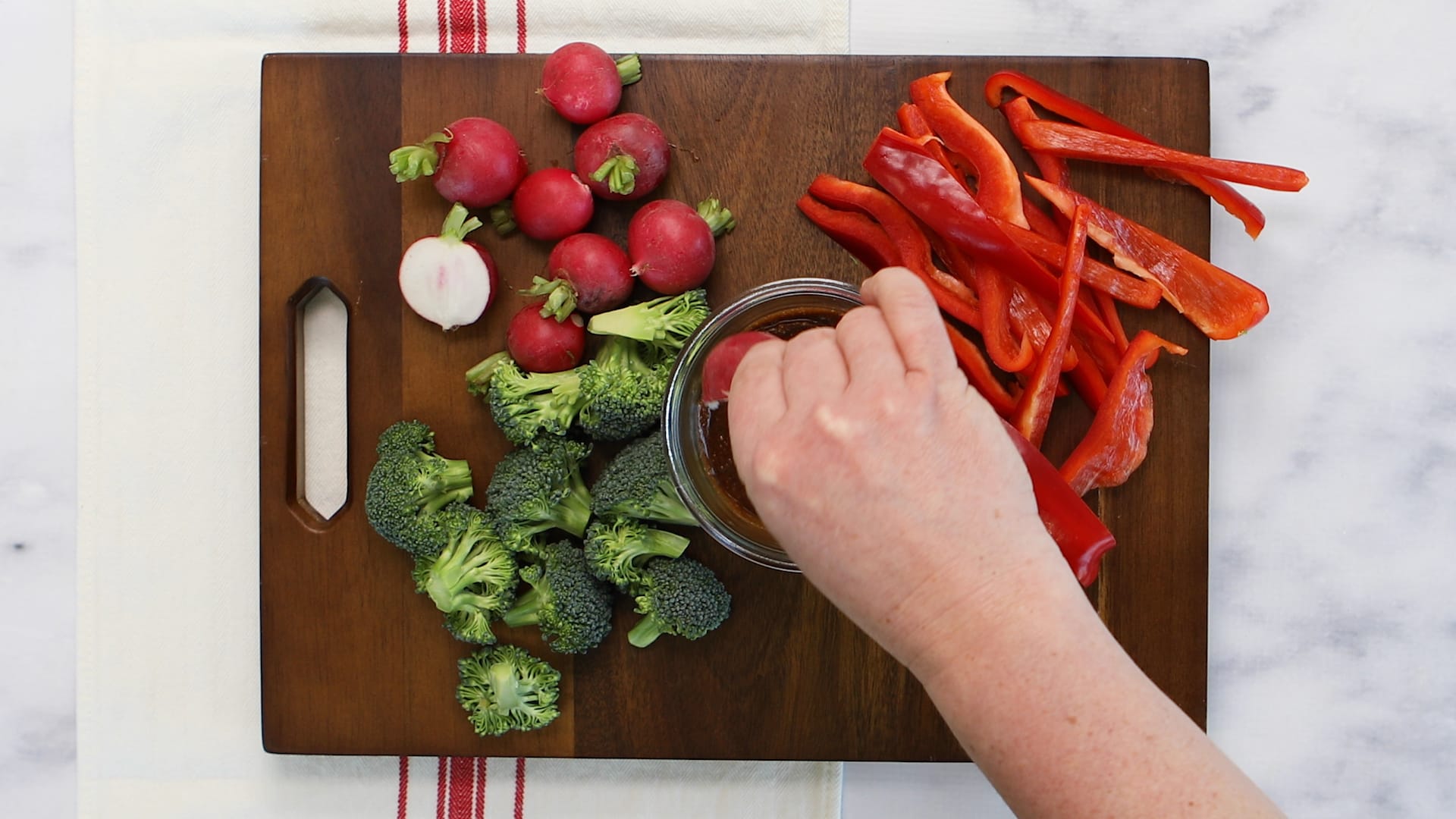
Get vegetables onto your kid’s plates, every single time they are served.
Serve meals family style, pass bowls around the table so everyone gets a guaranteed look and smell, and make it a family rule that some of every food is on everyone’s plate.


Don’t push your kids to take a bite!
I know, it sounds crazy! Isn’t that the whole point?! However, the more pressure we put on our kids to eat the foods we desperately want them to eat, the less likely they are to eat it.
Our job as parents is to make vegetables available as much as possible, make them fun, help kids to engage with them in other ways, and then let them taste when they are ready.
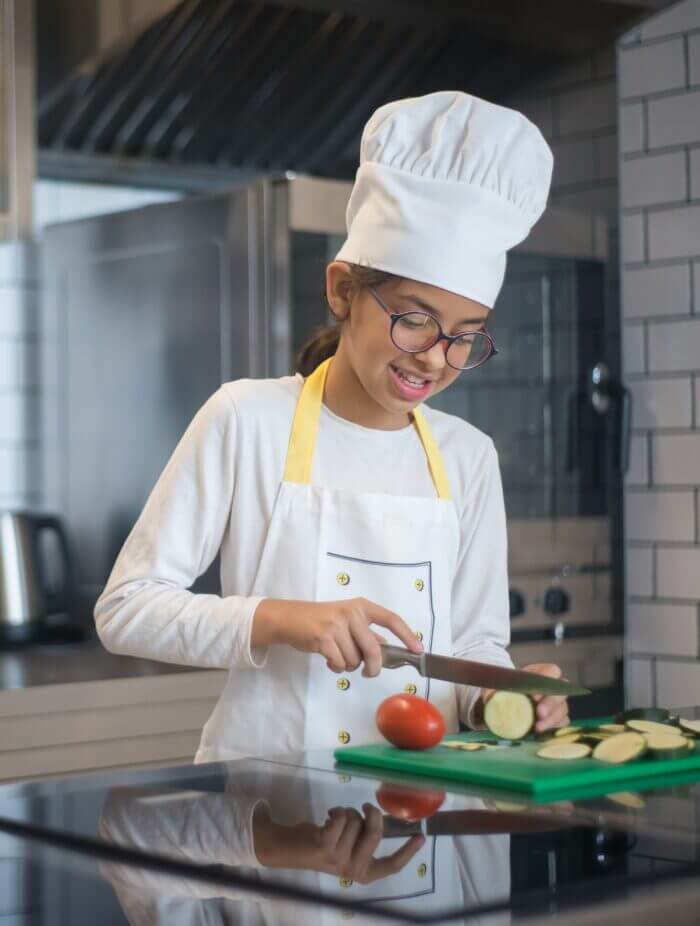

Lead by example!
What we model for our kids’ day in and day out is one of the strongest indicators of their future behavior. Even if you don’t like a vegetable, it’s helpful if they see you put it on your plate anyway, and that you keep trying it. Equally important is that they see the enjoyment on your face when you eat vegetables you love.
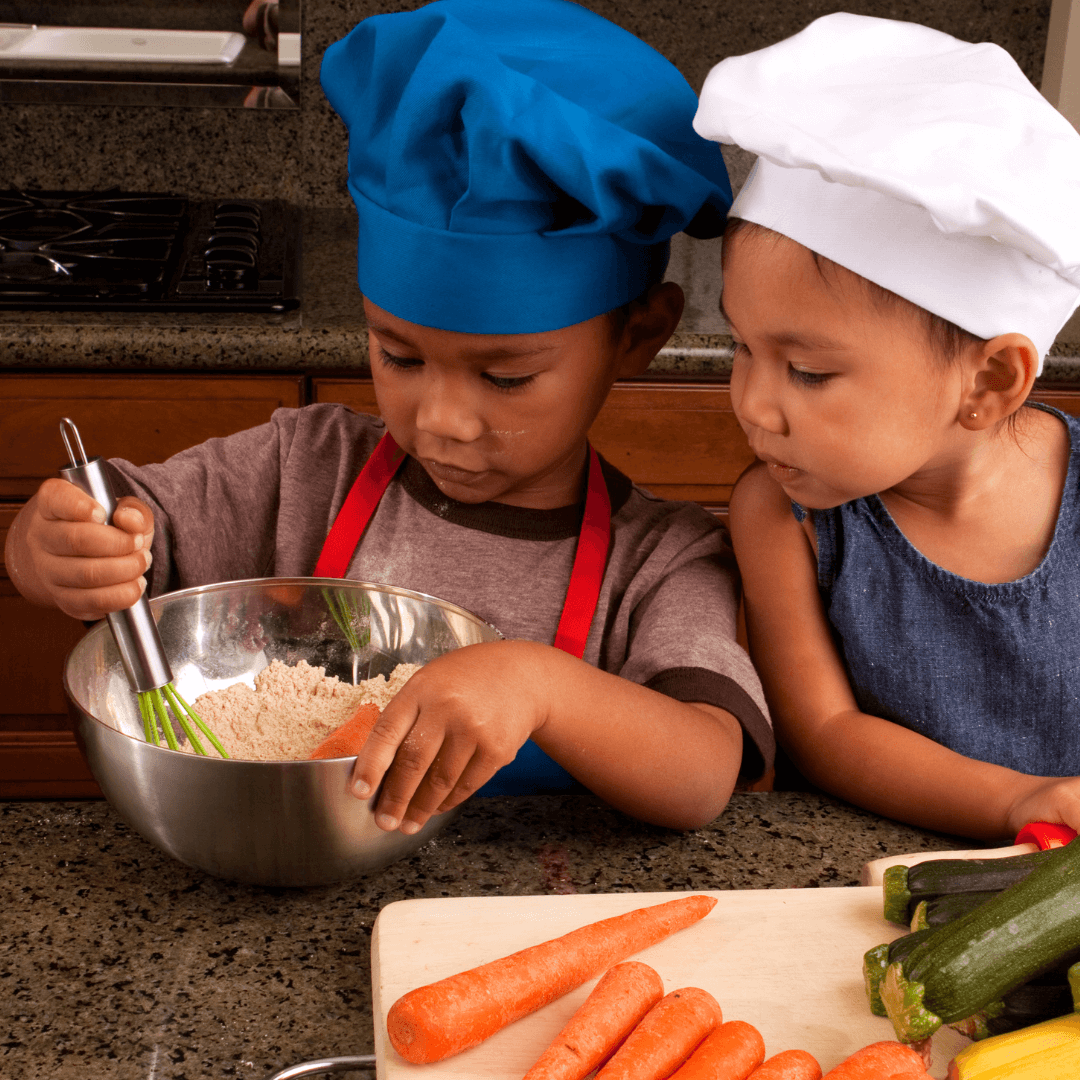

Bring your kids into the kitchen.
Having kids help in the kitchen gets them seeing, touching, smelling, and maybe tasting before the main event. This helps them feel ready to taste at the table and every taste contributes to a lifelong love.

Get them in the garden too (even if it’s just a single pot)!
When asked to pick a vegetable from a plant, there’s no pressure to eat it. Low pressure encounters allow fun exploration without stress and sets the stage for future success.
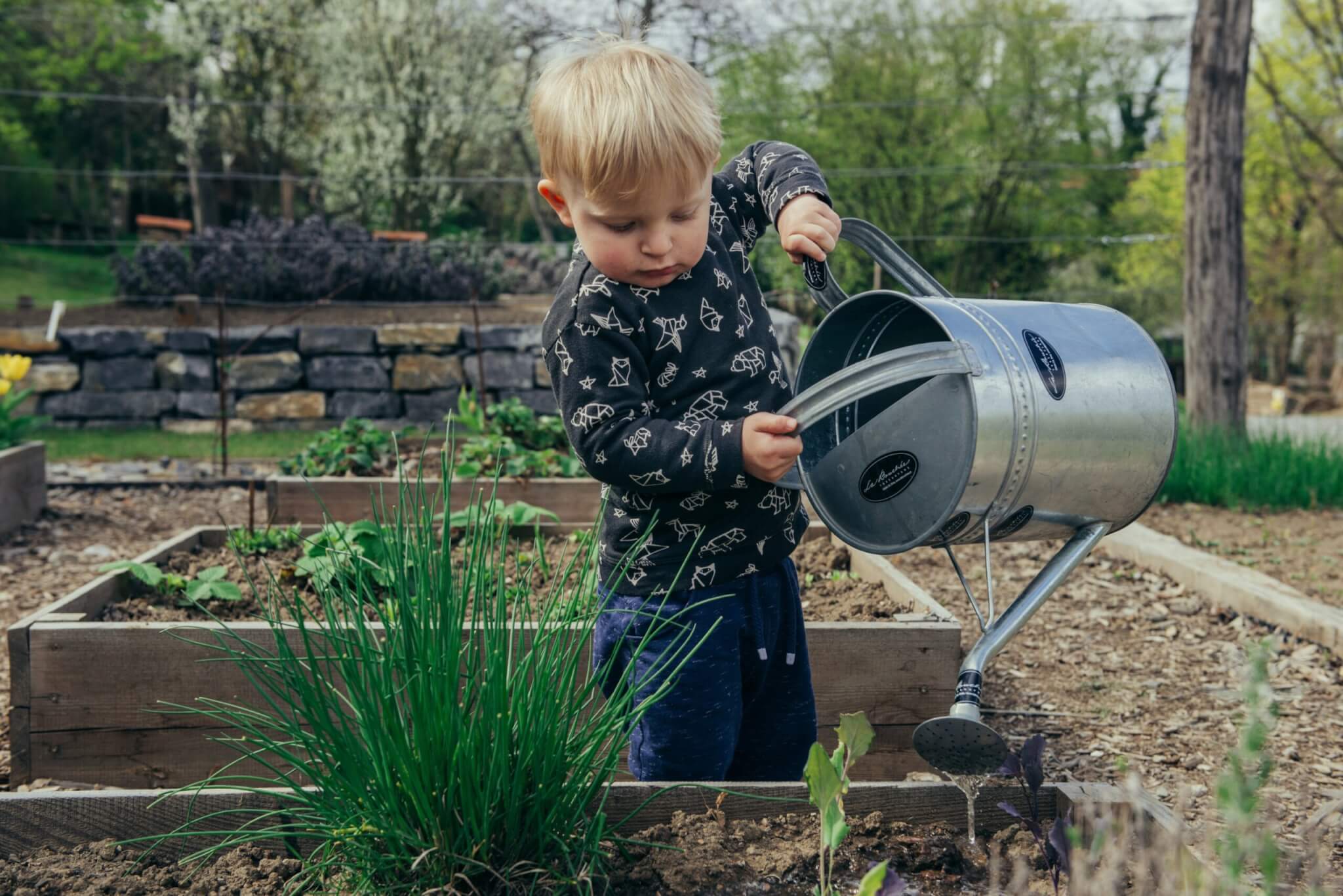

Think twice before you hide vegetables in other foods.
Known exposure is key to kids learning to love vegetables. When we hide vegetables in our kids’ foods, it might go well at first, but, with time, they will figure it out. And when they do, what they have learned is – that vegetables taste so bad they have to be hidden and that you are not to be trusted! So, add veggies to whatever you want, but have them help or make them aware.
Have your kids talk to a farmer.
If you want your kids to talk to someone that gets jazzed up about vegetables, head to a farmer’s market – or better yet, straight to the farm. I’ve never met a farmer that isn’t willing to tell you about their veggies, how they are grown, the different varieties and traits, or how to prepare them. Their passion rubs off on kids, especially if a farm visit involves tractors or animals too!

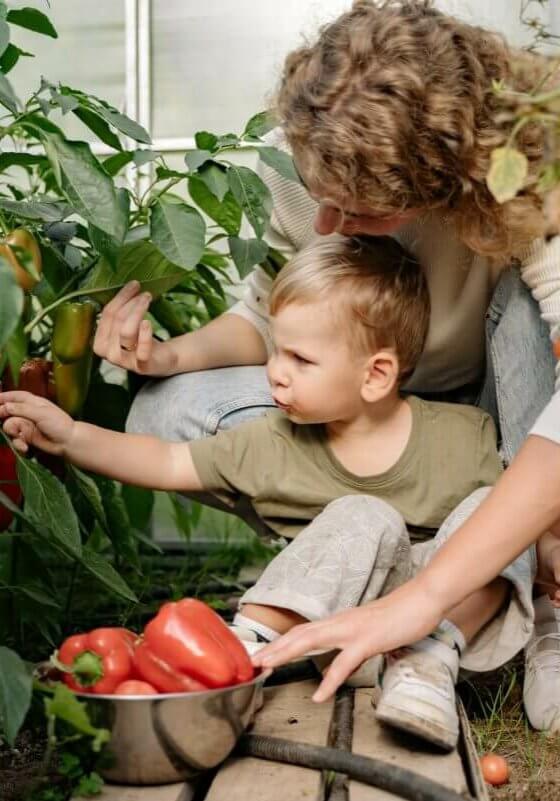

Don’t give up!
If they don’t get excited about cooking, gardening, talking to farmers, or any of the traditional ways to engage with food, find what they love and capitalize on it. Use vegetables for experiments, dissect them, paint with them, read books with vegetables, draw them, or use them as a microphone or telephone. Whatever you do, just make it fun for your child.

Never ever stop serving a wide variety of vegetables.
Even when they turn up their nose, gag, roll their eyes, and make a fuss, keep on serving! The moment vegetable exposures stop, you’ve taken away the opportunity for your child to grow to love them.
